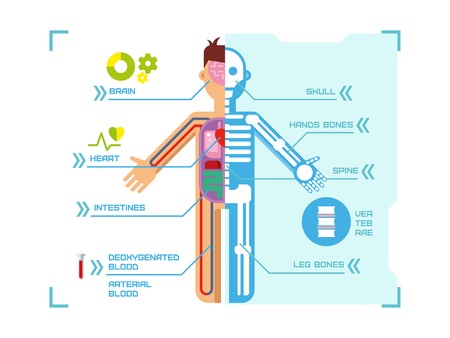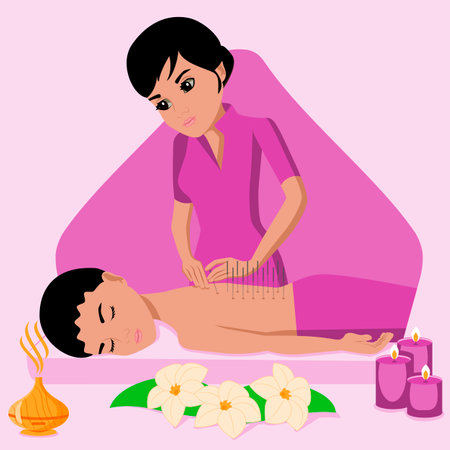Introduction to Postnatal Depression in the UK
Postnatal depression (PND) is a significant mental health concern that affects many women across the United Kingdom following childbirth. While it is common for new mothers to experience some degree of emotional fluctuation, PND is more persistent and serious, impacting not only the mother but also her infant, partner, and wider family unit. According to NHS data, approximately 1 in 10 women in Britain will experience postnatal depression within a year of giving birth, though the true figure may be higher due to underreporting and ongoing stigma.
Prevalence and Recognition in British Society
The prevalence of PND highlights the importance of recognising this condition as a public health issue. Despite increased awareness campaigns and resources from healthcare providers, many mothers still struggle to seek help due to feelings of shame or fear of judgement. The table below illustrates key statistics regarding postnatal depression in the UK:
| Aspect | Statistics/Information |
|---|---|
| Estimated Prevalence | 10–15% of new mothers |
| Onset Period | Within 6 weeks to 1 year after childbirth |
| Impact on Families | Affects bonding, partner relationships, child development |
Impact on Mothers and Families
The effects of PND reach far beyond the individual experiencing symptoms. New mothers often report feelings of hopelessness, anxiety, irritability, and difficulty connecting with their newborns. This emotional strain can disrupt family routines and affect relationships within the household. Furthermore, children of mothers with untreated PND may face challenges in cognitive and emotional development. In British society—where expectations around motherhood can be particularly high—the pressure to ‘cope’ or maintain a ‘stiff upper lip’ often exacerbates the silence surrounding postnatal depression.
2. The Role of Stigma and Cultural Attitudes
Within British society, the stigma associated with mental health—particularly postnatal depression—remains a significant barrier for many new mothers seeking help. Historically, there has been a cultural expectation that mothers should feel instant joy and fulfilment after childbirth. This traditional view often leaves little room for open discussion about the complex emotions and struggles that can accompany motherhood. For many women, the fear of being judged or labelled as “unfit” prevents them from reaching out for support, thereby prolonging their suffering and potentially impacting both their wellbeing and that of their child.
Societal Stigma Surrounding Postnatal Depression
Stigma in the UK is perpetuated by societal beliefs that equate good motherhood with emotional resilience and self-sacrifice. As a result, admitting to feelings of sadness, anxiety, or detachment may be seen as failing to meet these unspoken standards. This can lead to isolation, with mothers internalising their struggles rather than seeking professional help or confiding in friends and family.
Traditional British Views on Mental Health
| Aspect | Traditional View | Impact on Mothers |
|---|---|---|
| Mental Health Disclosure | Private matter, not openly discussed | Mothers may hide symptoms due to embarrassment or fear of judgement |
| Seeking Help | Seen as weakness or inability to cope | Delays in accessing support services and treatment options |
| Motherhood Ideals | Mothers should be naturally nurturing and resilient | Mothers experiencing PND may feel guilt or shame for not meeting expectations |
| Role of Family & Community | Problems kept within the family unit | Lack of open dialogue hinders identification and intervention for PND |
How These Attitudes Affect Mothers Experiencing Postnatal Depression
The combination of social stigma and deep-seated cultural attitudes often results in mothers enduring postnatal depression in silence. Many delay seeking help until symptoms become severe, increasing risks for long-term mental health challenges. By understanding and addressing these entrenched views within British society, healthcare professionals, families, and communities can work together to foster a more supportive environment where mothers feel empowered to speak openly about their experiences.

3. Barriers to Seeking Support
Within British society, mothers experiencing postnatal depression often encounter several significant barriers when seeking help. The stigma surrounding mental health, particularly for new mothers, can create a profound sense of isolation and shame. Many women fear being judged as unfit or incapable parents if they admit to struggling emotionally after childbirth. This fear is often reinforced by societal expectations that mothers should naturally feel joy and fulfilment during the postnatal period, making it difficult for women to voice their true feelings.
Common Obstacles Faced by British Mothers
| Barrier | Description |
|---|---|
| Fear of Judgement | Concerns about negative perceptions from family, friends, and professionals may prevent mothers from disclosing their struggles. |
| Lack of Awareness | Many women are unaware of the symptoms of postnatal depression or do not recognise that what they are experiencing is a medical condition requiring support. |
| Systemic Issues in Healthcare | Challenges within the NHS, such as limited appointment times, under-resourced mental health services, and long waiting lists, can hinder timely access to professional help. |
The Impact of Cultural Expectations
Cultural norms in the UK often emphasise self-reliance and resilience, which can discourage mothers from reaching out for support. Some may worry about being labelled as ‘weak’ or ‘overreacting’, especially in communities where mental health discussions remain taboo. Additionally, language barriers and lack of culturally sensitive care can further marginalise mothers from ethnic minority backgrounds.
The Role of Health Professionals
While midwives and health visitors play a vital role in identifying postnatal depression, there can be inconsistencies in screening practices across different regions. Not all healthcare professionals receive adequate training in maternal mental health, leading to missed opportunities for early intervention. These systemic gaps highlight the need for more comprehensive education and resources within the healthcare system to ensure that every mother receives appropriate care without fear of stigma or discrimination.
4. Personal Narratives: Lifting the Veil
In British society, postnatal depression is often shrouded in silence, leaving many mothers feeling isolated and misunderstood. By sharing real-life experiences, we can break down barriers and challenge the stigma that surrounds this condition. Here are a few personal stories from British mothers who bravely opened up about their struggles with postnatal depression:
Name (Pseudonym) |
Background |
Experience |
Impact of Stigma |
|---|---|---|---|
| Sophie | First-time mum from Manchester | Sophie experienced overwhelming sadness and guilt, fearing judgment from friends and family if she spoke out. | She delayed seeking help due to shame, but now advocates for open conversations in local mother-and-baby groups. |
| Asha | Second-generation British-Asian mother in Birmingham | Asha struggled with cultural expectations to be a “strong mum” and felt unsupported by her extended family. | The stigma within her community made her feel invisible until she accessed NHS support through her health visitor. |
| Emily | LGBTQ+ parent living in London | Emily faced both postnatal depression and discrimination related to her family structure. | Online forums provided a safe space to share her feelings and connect with others facing similar challenges. |
These narratives highlight the diversity of experiences across different regions and communities in the UK. They underscore how crucial it is for families, healthcare professionals, and wider society to create an environment where mothers feel empowered to speak openly. Open dialogue not only helps individuals seek timely support but also reduces shame and isolation associated with postnatal depression. By lifting the veil on these hidden stories, we can nurture a culture of empathy, understanding, and hope for all new parents.
5. Breaking the Silence: Support and Resources
Overcoming the stigma associated with postnatal depression (PND) in British society requires accessible support, compassionate healthcare professionals, and strong community initiatives. In the UK, a variety of resources are available to mothers, partners, and families navigating the challenges of PND. Understanding these options is essential for promoting recovery and normalising open conversations about maternal mental health.
NHS Support Services
The NHS remains the primary provider of support for mothers experiencing PND. Women can access help through their GP, midwife, or health visitor. These professionals are trained to recognise symptoms of PND and offer both medical and psychological interventions. The NHS also provides talking therapies such as cognitive behavioural therapy (CBT), group sessions, and medication if required. Early intervention is encouraged to prevent escalation and foster better long-term outcomes for both mother and child.
Key NHS Support Pathways
| Service | Description | How to Access |
|---|---|---|
| GP Consultation | Initial assessment, referrals, prescriptions | Book appointment at local surgery |
| Maternity Services | Midwives monitor mental health during and after pregnancy | Routine appointments or self-referral |
| Health Visitor Support | Regular check-ins, parenting advice, emotional support | Home visits or clinic drop-ins |
| Talking Therapies (IAPT) | Counselling, CBT, group therapy sessions | Self-referral or via GP |
Community Initiatives and Peer Support
Beyond clinical care, local community groups play a pivotal role in supporting mothers affected by PND. Charities such as PANDAS Foundation UK, MIND UK, and NCT (National Childbirth Trust) offer helplines, peer support groups, and online forums where mothers can share experiences free from judgement. Many communities also organise “mum-and-baby” meet-ups that encourage social connection—an important factor in reducing feelings of isolation.
The Role of Healthcare Professionals in Combating Stigma
Nurses, midwives, health visitors, and GPs are key to breaking down barriers around postnatal depression. By using non-judgemental language and routinely discussing mental health alongside physical postpartum checks, healthcare professionals can create a safe space for disclosure. Continuing professional development on perinatal mental health ensures staff remain up-to-date with best practices in screening and support.
Practical Ways Professionals Can Help:
- Routinely ask about mood and wellbeing during all postnatal contacts.
- Provide leaflets and signposting to both NHS services and local charities.
- Encourage partners or family members to get involved in support plans.
- Create follow-up plans tailored to individual needs.
Together—with informed professionals, robust NHS pathways, and supportive communities—British society can dismantle the stigma surrounding postnatal depression. It is only by fostering open dialogue that we ensure no mother faces this journey alone.
6. Moving Forward: Fostering Change in British Society
Breaking the silence around postnatal depression (PND) requires a collaborative and strategic approach that involves policy makers, healthcare professionals, and local communities across the UK. By addressing stigma and enhancing support systems, British society can foster an environment where new mothers feel safe to seek help and share their experiences without fear of judgement. Below are key recommendations designed to initiate lasting change:
Recommendations for Policy Makers
- Implement National Awareness Campaigns: Launch government-funded campaigns to educate the public about PND, emphasising its prevalence and normalising open conversations.
- Integrate Mental Health into Maternity Care Pathways: Ensure mental health screening is a routine part of antenatal and postnatal care within the NHS.
- Increase Funding for Perinatal Mental Health Services: Allocate resources to provide timely access to specialised support for mothers experiencing PND.
Recommendations for Healthcare Professionals
- Enhance Training: Provide mandatory education on perinatal mental health and cultural competence for midwives, health visitors, GPs, and nurses.
- Create Safe Spaces: Foster non-judgemental environments where women can openly discuss emotional wellbeing during check-ups.
- Strengthen Referral Networks: Establish clear pathways to refer mothers to counselling, peer support groups, or crisis intervention services as needed.
Recommendations for Communities
- Promote Peer Support Initiatives: Encourage the development of local mother-and-baby groups that prioritise mental health discussion alongside social connection.
- Engage Family Members: Equip partners and relatives with information on recognising signs of PND and how to offer practical support.
- Tackle Cultural Barriers: Work with diverse community leaders to address specific cultural stigmas and ensure accessible support for all backgrounds.
A Holistic Approach: Collaboration Across Sectors
| Sectors | Key Actions |
|---|---|
| NHS & Public Health England | Develop integrated care models linking maternity, mental health, and social services. |
| Education Sector | Introduce mental health education in schools to destigmatise early on and promote empathy towards new parents. |
| Charities & NGOs | Sustain advocacy work, offer helplines, and create culturally sensitive resources for families nationwide. |
The Path Ahead
Cultural change will not happen overnight. However, by implementing these recommendations and working together at every level of British society, we can reduce stigma, improve outcomes for mothers experiencing postnatal depression, and build a more compassionate future where every parent feels seen, heard, and supported.


